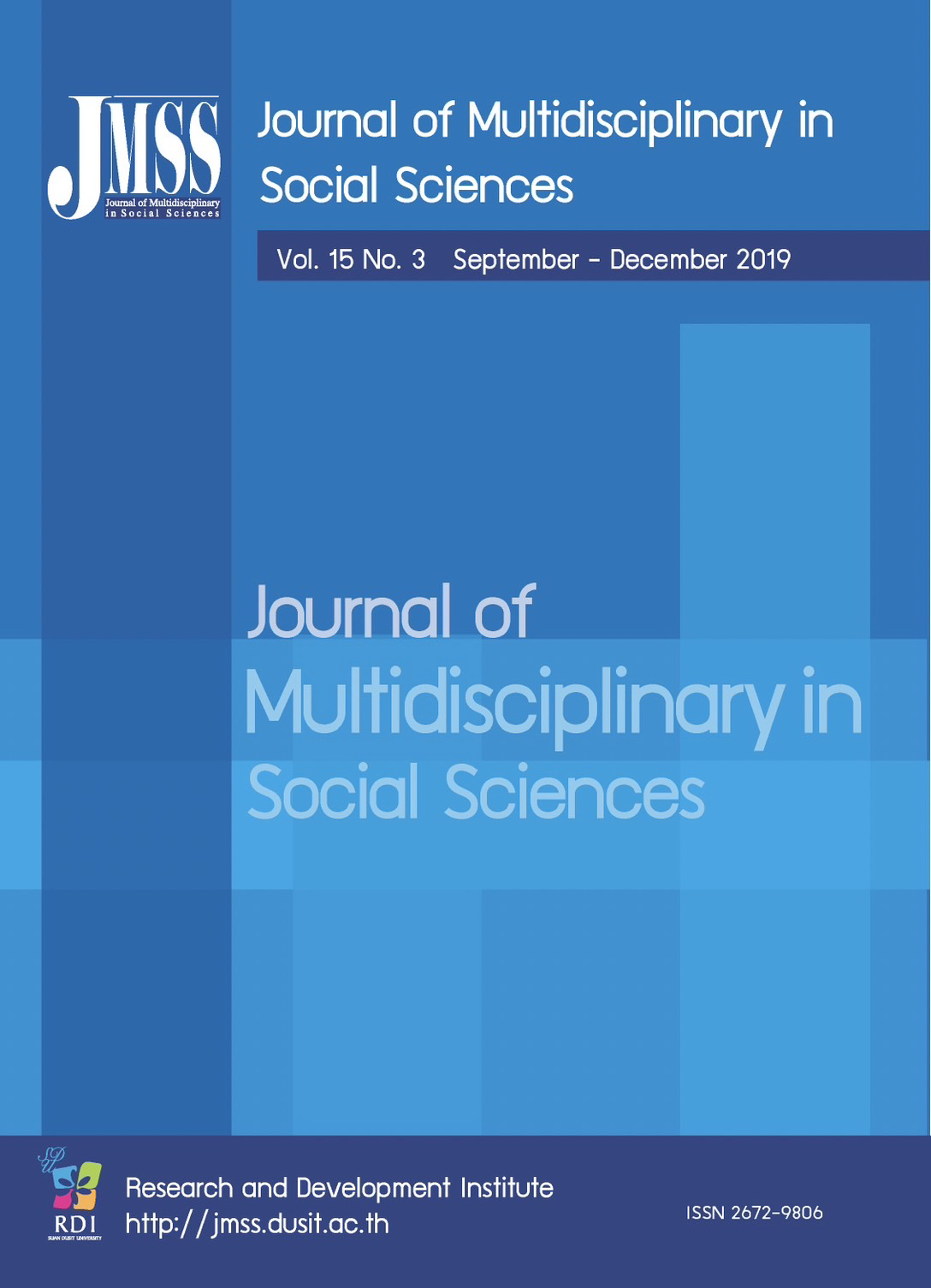Thailand’s Civil Productivity through Learning Management of Social Studies in Schools
Keywords:
Productivity, Civil Productivity, Social StudiesAbstract
The research objectives are (1) to study creation of citizenship based on productivity concepts and (2) to study the creation of citizenship through learning management of social studies subjects in Thai schools. The samples used were 124 social studies teachers in the senior high schools and 5 educational supervisors. The survey and interview were used as the methods for data collection. The research tools were questionnaires, structured interview forms and document analysis forms. Frequency and percentage were used for data analysis. The learning process of Zhao's POL Concept and Paitoon Sinlarat’s CCPR Model were used as the analysis model to build citizenship through Thai education system in social studies subjects. The findings reveal that the productivity concepts were similar when the teachers transferred the knowledge to the students. The creative thinking and analyzing occurred during the transferred process. The previous knowledge was a crucial factor to apply for the new knowledge to create work or knowledge reflection and it must be based on ethical social responsibility. When considering the difference of Zhao's POL Concept and Paitoon Sinlarat’s CCPR Model, it found that the Zhao's POL Concept emphasized on the teachers who defined the learning process to create productivity of students while the Paitoon Sinlarat’s CCPR Model emphasized on the students to achieve CCPR Model. The opinion of the social studies teachers on productivity concepts for learning management in building citizenship through the current education system of Thailand was found to be moderately well-known. Social studies teachers and educational supervisors showed the same opinions that ethics and morals should be emphasized for building citizenship and the obstacles were teachers’ workloads apart from routine tasks that made the learning process on the civil productivity concept to become harder. The educational supervisors realized that too much workload of social studies teachers was an important problem that may lead to misconception. Therefore, the appropriate curriculum and teaching methods should be developed and oriented to the teachers who are the most important factors to build civil productivity of Thailand.
References
Equitable Education Fund. (2018). Educational expenses in Thailand. Retrieved October 15, 2019 from https:// www.eef.or.th/wp-content/uploads/2018/10/PB_EEF- 1.pdf
Ignatieff, M. (1995). The Myth of Citizenship, in Theorizing citizenship. SUNY Press.
Marshall, T.H. (1994). Citizenship and Social Class, in Citizenship and Social Class and Other Essays. Cambridge: University Press.
Ministry of Education. (2001). Basic Education Curriculum B.E. 2544 (A.D. 2001). Bangkok: Development of Academic Quality.
Ministry of Education. (2008). Basic Education Curriculum B.E. 2551 (A.D. 2008). Bangkok: Development of Academic Quality.
National Statistical Office Thailand. (2015). The Analysis of Youth and Children. Bangkok: Bangkok Block.
Office of the Basic Education Commission. (2014). Civic education. Bangkok: Office of the Basic Education Commission.
Samudavanija, C. (2014). Institute of Public Policy Studies under Foundation for the Promotion of Public Policy Studies (2014). The Guideline to Create Civil in Democratic Society. Bangkok: P. Press.
Sinlarat, P. (2014). Productivity School. Bangkok: Dhurakij Pundit University.
Sinlarat, P. (2016). Productive Thinking: How to Teach and Create. Bangkok: Chulalongkorn University Printing.
Tantisunthorn, T. (2011). Education for Civil. Bangkok: Institute of Public Policy Studies.
ThaiPublica. (2014). When Minister of the Minister of Education Changed Often: 16 Minister in 15 Years. Retrieved October 15, 2019 from https://thaipublica.org/2014/01/the-performance-period-of-the-minister-of-education
Wannapaisan, C. (2016). Social Studies Concepts. Chiang Mai: Faculty of Education, Chiang Mai University.
Zhao, Y. (2012). Product-Oriented Learning, World Class Learners: Educating Creative and Entrepreneurial Student. London: Corwin.
Downloads
Published
How to Cite
Issue
Section
License

This work is licensed under a Creative Commons Attribution-NonCommercial-NoDerivatives 4.0 International License.








